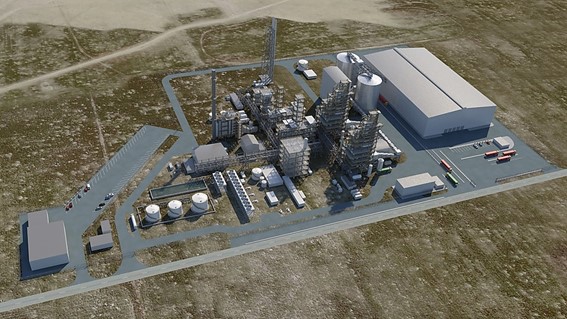Partners repurpose Rotterdam waste-to-chemicals project to waste-to-jet
Type of post: NEWS IN BRIEF.
Partners repurpose the Rotterdam waste-to-chemicals project to waste-to-jet based on: substantial targets and demand for Sustainable Aviation Fuel (SAF); expected support for Recycled Carbon Fuels; and a full scope, ‘in-house’ technical solution to be provided by Enerkem and Shell.
Press release: “From Waste-to-Chemicals to Waste-to-Jet”, 08/06/2021.
Related posts:
- “Air Liquide, AkzoNobel, AVR, Enerkem and Van Gansewinkel to build waste-to-chemicals plant in Rotterdam”, 10/10/2016.
- “Air Liquide, AkzoNobel, Enerkem and the Port of Rotterdam sign agreement to cover the initial investment of the Rotterdam waste-to-chemistry project”, 16/02/2018.
Figure 1. Partners repurpose Rotterdam waste-to-chemicals project to waste-to-jet (extracted from the press release)
With favourable support under Renewable Transport fuels regulations expected, the production of SAF from low-grade, post-recycling mixed waste has become an option, the partners in the project have decided to repurpose the current project to focus on SAF production. The project would process up to 360 ktons per year of recycling rejects and produce up to 80 ktons of renewable products, of which around 75% could be SAF and the remainder used for road fuels or to feed circular chemicals production. Development of the revised project is underway and the partners (Enerkem, Shell and the Port of Rotterdam) are looking to submit a permit application for the revised project by the end of 2021. If the final investment decision has been taken, construction of the project could take approximately 3 years with production starting in 2025 or 2026.
The combination of Enerkem’s technology with Shell’s Fischer-Tropsch technology is a promising pathway. Enerkem’s platform creates ultra-clean syngas from waste. Shell’s Fischer-Tropsch technology can upgrade this syngas to sustainable aviation fuel. The Port of Rotterdam will also continue to be a partner as the realization of this kind of large-scale circular facilities is an essential part of the Port Authority’s strategy. Air Liquide expressed to the Waste-to-Jet participants it is willing to participate in the project as a supplier of industrial gases.




